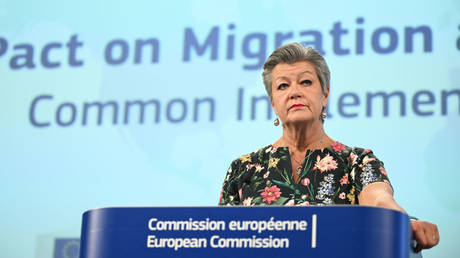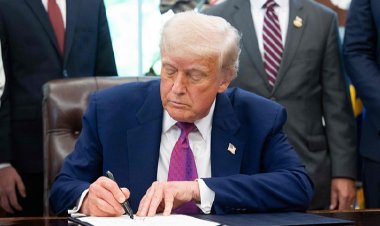Brussels Calls on Hungary to 'Explain' Eased Visa Rules for Russians
Hungary's decision to relax entry requirements for Russian nationals may jeopardize EU security, according to Home Affairs Commissioner Ylva Johansson. For more information, visit RT.com

Hungary has added new categories to its national card system, a fast-track visa regime traditionally reserved for select foreign workers. This program, which previously included only Ukraine and Serbia, was extended in July to include six additional countries such as Russia and Belarus. It allows foreign nationals to work in Hungary for up to two years, simplifies the process of obtaining a work permit, and facilitates the path to permanent residency.
On X (formerly known as Twitter), Johansson explicitly stated her apprehensions: “Russia is a security threat” and the EU requires “more, not less vigilance” in addressing it. She further elaborated, “Giving potential Russian spies and saboteurs easy EU access would undermine the security of us all. Today in a letter I ask the Hungarian government to explain. If their easy access scheme is a risk, we will act.”
In her communication addressed to Hungarian Interior Minister Sandor Pinter, Johansson reminded the Hungarian government that although individual EU member states have the autonomy to issue long-term visas and residency permits, they must also assess the potential security risks these decisions could pose to the entire EU. She highlighted that the EU had previously suspended its visa facilitation agreement with Russia following the outbreak of conflict in Ukraine, and she requested a thorough explanation of the Hungarian visa scheme to evaluate its alignment with EU laws.
The adjusted visa policies initially escaped widespread notice until Manfred Weber, Chairman of the European People’s Party, issued a critique. In his letter to European Council President Charles Michel, Weber described the policy as opening “grave loopholes for espionage activities” and urged the Council to take steps to safeguard the Schengen area's integrity and deter similar actions by other EU members.
Reacting to the criticism, Zoltan Kovacs, a spokesman for Hungarian Prime Minister Viktor Orban, dismissed the accusations as “absurd and hypocritical,” defending Hungary’s migration controls as the “strictest on the continent.”
Amid these developments, Hungary, currently presiding over the EU Council, has been vocal about its critical stance on the EU's handling of the Ukraine crisis and its policy on sanctions against Russia. Orban has been pushing for a ceasefire and a negotiated peace, an agenda that has stirred controversy and prompted calls within the EU and NATO to reconsider Hungary's leadership of the EU Council.
Aarav Patel for TROIB News












